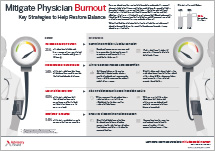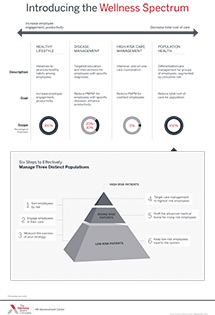Auto logout in seconds.
Continue LogoutAdaptogens are the latest health and wellness craze, showing up everywhere from trendy supplement aisles to bright-pink Instagram smoothies. Proponents say these "super herbs" can adapt to provide whatever your body needs at a particular moment—whether that's a morning boost, an evening wind-down, or an overall sense of balance.
Understand the full wellness spectrum
But what does the research say?
What are adaptogens?
Adaptogens are plants that proponents say "adapt" to the needs of a person's body and help protect them from the effects of various stressors. The herbs have been used for centuries in both Chinese and Ayurvedic health traditions, and proponents of the plants today say that they can help support the body's adrenal glands, which can reduce stress levels and regulate hormone responses.
The plants are sold in several forms, including teas, pre-mixed powder that can be added to beverages or food, and capsules.
Experts caution consumers to read the ingredients to be sure of what they are purchasing, noting that the products are typically not regulated by FDA.
What do proponents claim?
While there's a sparsity of research examining how adaptogens affect humans, some health and wellness coaches—and even some providers—believe the products may have benefits.
Jordan Younger, a blogger who has touted adaptogens as "super herbs," cited wide-ranging health benefits for the herb known as ashwagandha: "Ashwagandha could help you slow down and unwind at the end of the day," she said, adding, "But for somebody else who might need more energy, ashwagandha could potentially give them a boost in the morning. I used to have ashwagandha to avoid getting jitters from caffeine."
Krysia Zanjoc, a founder of the supplement company Moodbeli, learned about adaptogens during her travels in Costa Rica, and similarly argues that the herbs have extensive benefits: "I learned that adaptogens have all of these amazing abilities to kind of make us feel better, make us feel good and also teach us a lot about history, geography and cultural history."
What does the science say?
There's little evidence to back up proponents' claims for the benefits of adaptogens, Time reports. Most of the scientific studies that have looked at adaptogens have appeared in niche journals and examined only animal subjects or cellular samples. As such, little is known about adaptogens' effects, if any, on human health.
While there's little evidence that adaptogens have negative side effects, herbal supplements can carry well-documented risks, including allergic or gastrointestinal reactions. Further, a 2018 study suggested some common herbal supplements can cause harmful interactions when taken with prescription medications.
Still, a few providers have suggested ways that adaptogens could potentially benefit health. Brenda Powell, co-medical director of the Center for Integrative and Lifestyle Medicine at the Cleveland Clinic's Wellness Institute, said adaptogens may help people's adrenal glands the same way exercise helps their muscles. "When we exercise, it's a stress on our body. But as we continue to train and exercise, our body becomes better at dealing with the stress of it, so we no longer get as tired or as high a heart rate." Adaptogens, Powell said, work in a similar manner by "training your body to handle the effects of stress."
Powell said the plants interact with the hypothalamic-pituitary-adrenal axis as well as the sympathoadrenal system, both of which play a role in how the body responds to stress. Adaptogens may also have the ability to alter hormone production and the physiological responses to stress, according to Powell.
For those who do jump abroad the adaptogen trend, Powell stressed that they should be viewed as a bandage rather than a cure to stress. "People are basically wanting to take these adaptogens all the time for their chronic stress that they're not managing otherwise," she said. She added that while it's "easier to take a pill than change your lifestyle," it's healthier in the long-run to address the root cause of your stress (Zoldan, New York Times, 6/1; Ducharme, TIME, 2/28).
Help your employees promote healthy habits—regardless of the newest fads
Programs aimed at promoting healthy habits among employees are likely to lead to improved employee engagement and productivity—but they're unlikely to reduce the total cost of care. To do that, you'll need to take a population health approach.
Don't miss out on the latest Advisory Board insights
Create your free account to access 1 resource, including the latest research and webinars.
Want access without creating an account?
You have 1 free members-only resource remaining this month.
1 free members-only resources remaining
1 free members-only resources remaining
You've reached your limit of free insights
Become a member to access all of Advisory Board's resources, events, and experts
Never miss out on the latest innovative health care content tailored to you.
Benefits include:
You've reached your limit of free insights
Become a member to access all of Advisory Board's resources, events, and experts
Never miss out on the latest innovative health care content tailored to you.
Benefits include:
This content is available through your Curated Research partnership with Advisory Board. Click on ‘view this resource’ to read the full piece
Email ask@advisory.com to learn more
Click on ‘Become a Member’ to learn about the benefits of a Full-Access partnership with Advisory Board
Never miss out on the latest innovative health care content tailored to you.
Benefits Include:
This is for members only. Learn more.
Click on ‘Become a Member’ to learn about the benefits of a Full-Access partnership with Advisory Board
Never miss out on the latest innovative health care content tailored to you.


